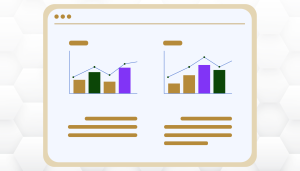
Share
Last week, we brought forth meditation and mindfulness as hope in the form of a suggestion to help maintain one’s sanity during this global pandemic.
In that same article, we included some ways staff at Ad Purp have coped with working from home. We’re all adjusting, not only with being stuck at home for the foreseeable future, but with the lack of social interaction and many other creature comforts we no longer can rely upon.
What we found was true with our team is consistent with what is being discovered by experts nationwide regarding how people are managing their mental health and ability to move forward during this time.
It’s important to acknowledge how you feel and realize others are feeling the same way.
The struggle is real
If you’re working from home right now and struggling, even a little bit, you’re not alone. In a survey of 11,000 tech workers, which took place from May 12 to May 28 (peak COVID-19), it was found that 57% of those involved in the study were currently feeling burned out.
That 57% burned out number is normally closer to 25% or a quarter during regular times, according to the American Psychological Association. So, clearly, this is a bit of an epidemic.
And before going any further, it’s important for those of us who even have the opportunity to work from home during this pandemic to check our privilege. Many Americans and people around the world aren’t so lucky.
Either they are still commuting to and from an essential worksite or they are simply unemployed. Perhaps, laid off or furloughed without warning. The paycheck and stability all of us at Ad Purp and some of these other tech companies have and enjoy is nothing to take for granted.
That said, it’s been difficult. With everything from a global pandemic, civil unrest, political drama, economic turmoil, and much more, it’s been studied and data has been tracked showing specific impact COVID-19 has had on all of us and our ability to be productive and happy.
What exactly are symptoms of burnout?
BurnoutIndex.org examined four indicators of burnout: exhaustion and fatigue, cynicism around work, depersonalization (lack of sympathy and emotional harshness), and loss of efficacy and productivity on a scale.
While most of us may be familiar with how exhaustion and fatigue lead to burnout, the other three factors align closely to the revised definition of burnout in the WHO’s 11th International Classification of Diseases, as well as the Maslach Burnout Inventory, first defined in 1981 by UC Berkeley psychology professor Christina Maslach.
From February to March, signs of burnout rose among tech workers on all four indicators, with the highest being depersonalization, particularly with regard to the statement “I find myself being harsher emotionally with others,” which rose 17% in just one month.
I personally have felt all four of these indicators of burnout, of course to varying degrees. But it’s important to acknowledge that this is a widespread phenomenon. Part of what has made this period even more difficult is that we’re all seemingly living in a vacuum.
It’s even more difficult to experience discomfort mentally while stuck at home, wondering “is it just me?” “When will this end?” “How is everyone else managing when this feels so strenuous to me?”
I know I’ve felt that way ten-fold over the past few months. And it’s important to acknowledge that it’s been months! And who knows how many more it will be? This just further highlights how much harder it is to cope with such a distinct level of uncertainty.
Early signs pointing to recovery?
The silver lining is that things are starting to stabilize. As early as April, data from BurnoutIndex.org found that worker burnout indicators were starting to decline from their March peak.
“The jump of the burnout phenomenon in March was utterly remarkable,” said Carlos Sponton, who has an MSc in work psychology and is the head of behavioral science at Yerbo, commenting on the impact of COVID-19. “Then in April, we could see resilience and adaptation appear in reaction to the new purpose.”
But even as overall burnout scores came down, exhaustion fell a mere 1% and had an absolute score of 4.1 out of 6, which made it the highest of the four factors. This suggests that workload still hasn’t landed at a sustainable level, as employees continue to report feeling run-down.
Instead, what’s driving the overall burnout recovery seen in the BurnoutIndex.org figures is an improvement in two other factors: cynicism and depersonalization. Both fell around 12%, with April numbers (2.9 and 2.5, respectively, in terms of absolute scores) reaching well below their February baselines.
I personally can relate. I think this “new normal” is something I’d much rather have avoided, but I do believe I honestly have gotten used to it, for better or worse. It’s anecdotal but I think still important to note that weeks have gone by more quickly towards the more recent days in quarantine. Whereas, at first, weeks crawled.
Being thankful to have work right now may be the key to avoiding cynicism
In my opinion, one of the keys to getting through this time has been, certainly, perspective and gratitude. In the end, it’s easier for me to be a team player when I can accurately realize and understand it’s an unprecedented situation (a pandemic) and we’re all doing our best to adapt.
I think it’s easy to get caught up in projecting one’s emotional state on the situation at hand. Because we’re feeling stressed, cynical, and as if work is more emotionally laborious than usual, we might find faults in our boss, colleagues, or the company as a whole, employing us.
Nobody is really to blame here, though. And I think those studies above indicate that there is no magical company who’s workers aren’t dealing with exhaustion, fatigue, stress, and the rest.
All of that said, I wanted to provide a bit of an outlet for our team to anonymously share some of the things they’ve been able to tell themselves in order to cope. So, we’ll offer that space for venting below. And hopefully it’ll end up being cathartic and empowering to feel unity in struggle.
All emotions are valid right now, but let’s focus on gratitude
Here are some candid anonymous quotes from a few of our team members about the challenges of working in quarantine:
“More than anything else, it’s the fact that my day to day surroundings never change. Wake up, open the laptop, close the laptop, eat, Netflix, sleep, repeat. This sort of monotony isn’t something I even thought I would experience in my life, and the compounding world events that paint the backdrop make things even harder/scarier. Lately, however, I have been trying to focus on what is important in my life. Keeping in touch with family and friends has been huge for my mental health, especially when it’s online playing games or watching shows/movies virtually.”
“Working from home has had its perks and downfalls. While I expected to miss my amazing coworkers and fun office events, I didn’t realize how hard it would be to adjust to a completely new lifestyle. Being unable to do things that I’m used to doing, like going to restaurants and hanging out with my friends made life boring pretty quick. But with the downfalls of working from home, there have been many positives from this new lifestyle. I’ve enjoyed having the freedom to do things that I wouldn’t be able to in an office like working out during lunch and cooking more elaborate meals and snacks. I’ve also made it a priority to connect with my friends and coworkers via zoom or facetime. While there have been adjustments to working from home, I’ve been able to maintain my perspective by focusing on the positive aspects of this change.”
“Initially, working from home certainly sounded like a dream come true. Thoughts of getting an extra 30 minutes of sleep or working all day in sweatpants made it hard to to actually find a downside. Fast forward 3 months and I realize I was extremely wrong. The burnout is real. At times I find myself suffering from workaholism. In other words, if I don’t find myself doing something work related, I start questioning myself if I can be doing something more considering I’m technically in the office 24/7. Truthfully, I find myself sometimes more productive, no co-workers to chit chat with, no more coffee room breaks, etc. But the lack of socialization has really taken effect on my mental state, as its just me and my laptop all day. Recently, I’ve been really trying to get out more, taking daily strolls, getting some sunlight at the beach, or sometimes just disconnecting from work and social media at a certain time. Amidst the Covid-19 burnout, I realized taking into account my emotional and mental well-being is more important now than ever.”
“This ‘new normal’ took a huge toll on my productivity and motivation. I found myself sleeping more than usual and simply just uninspired or motivated to do anything. Prior to this pandemic, my schedule was jam-packed with so many activities, dance rehearsals, vacation trips, group hangouts – there was always something to do everyday after work/ on weekends. After realizing there was a problem, I decided to try new activities to bring back that motivation. At first, I started casually planning out vacation trips, but that brought more harm than good. Then I turned to cooking, which has helped tremendously. Knowing that I could make myself a hot meal 3x a day became a routine of comfort, which is normally something I’d never be able to do. I was amazed at how many new activities I was able to find that have helped bring back some of that motivation and creativity. Fast forward three-ish months, I realize now that the limitations we thought we had are in fact untrue. It was a simple switch of mindset. For example, can’t travel? Find a National Park. No gym? Make use of your patio/ garage area. No bars? Buy a DIY cocktail kit and make it a virtual hangout. DIY kits have really been a godsend. If there’s something you want to do but can’t, find an alternative. Once my mindset changed I started to feel more like myself again, and simply just happy.”
Naming and addressing the problem
Refusing to let these concerns fall on deaf ears, here’s what Ad Purp president Kyle Mitnick had to say in response to this valid and necessary commentary from our team:
“The financial impact of COVID seems to be getting the lion’s share of attention in business circles, but I believe the effect on team cohesion and morale will soon take center stage. In my opinion, the first step in addressing the elephant in the room is simply being mindful of it. From there, we can explore ways to increase our human contact, communication, empathy, and all other forms of basic connection we took for granted in a traditional office setting. But at the end of the day, we are human; we will fail and we will adapt. So I am hopeful in the last chapter of the COVID saga.”
—
I think it’s important to understand we are in uncharted territory. I for one am hopeful we’ll come out of it better off, understanding how lucky we are in normal circumstances to have the great “things” in our life but also more importantly to have each other. Corny, but true!





